Get ready for a crocodile chat!
In this article, we’ll explore how crocodiles communicate using different sounds. Some sounds scare off rivals, while others attract mates. Plus, we’ll look at how moms talk to their young even before they hatch. From growls to coughs, there are a lot of vocalizations these aquatic reptiles can make. So get ready. It’s time to learn how to speak croc!
1. Growl

A loud crocodile growl helps the reptile warn other crocs to stay out of their territory.
©Volodymyr Burdiak/Shutterstock.com
Crocodile growls are a way for these reptiles to claim their territory. The loud intimidating vocalization can warn other crocs of their presence, by delivering a threatening message. Some research also suggests the growls are a way for crocodiles to warn their young when danger is nearby.
2. Bellow

Crocodile bellows are usually part of a mating ritual, helping them to attract potential mates.
©Gelia/iStock via Getty Images
A crocodile’s bellow is different from a growl or roar and is often part of their mating ritual. The louder the bellow, the bigger the crocodile. Interestingly, the pitch of the bellow matches the size of the crocodile, making it a reliable indicator of their size.
So, how do crocodiles make these loud bellows? They use resonance, which means vibrations in their bodies create deep, growly sounds. This is made possible by a special gland in their throats called the glottis. This gland helps them communicate and hunt without swallowing water.
3. Cough
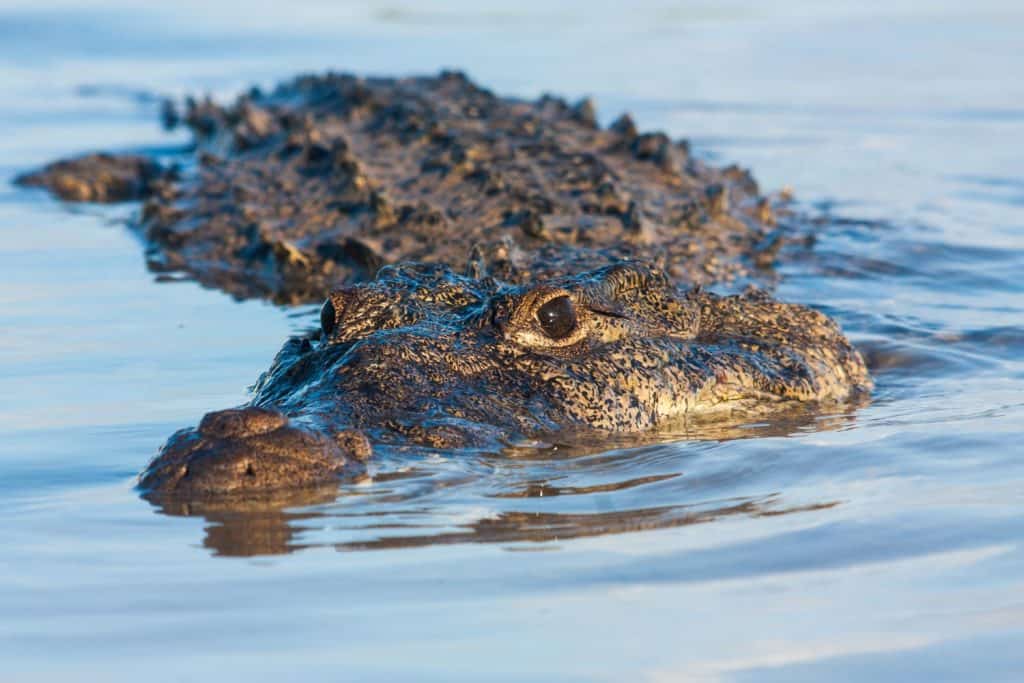
Sometimes crocodiles cough to communicate, other times it’s to help clear their airways of animal bits.
©Leonardo Gonzalez/Shutterstock.com
Crocodiles can cough, and they do it for different reasons. Sometimes these large beasts cough as a warning for others to stay away. Other times the cough is more like a cat coughing up a furball, allowing them to ride their bodies of things they can’t digest.
4. Hiss
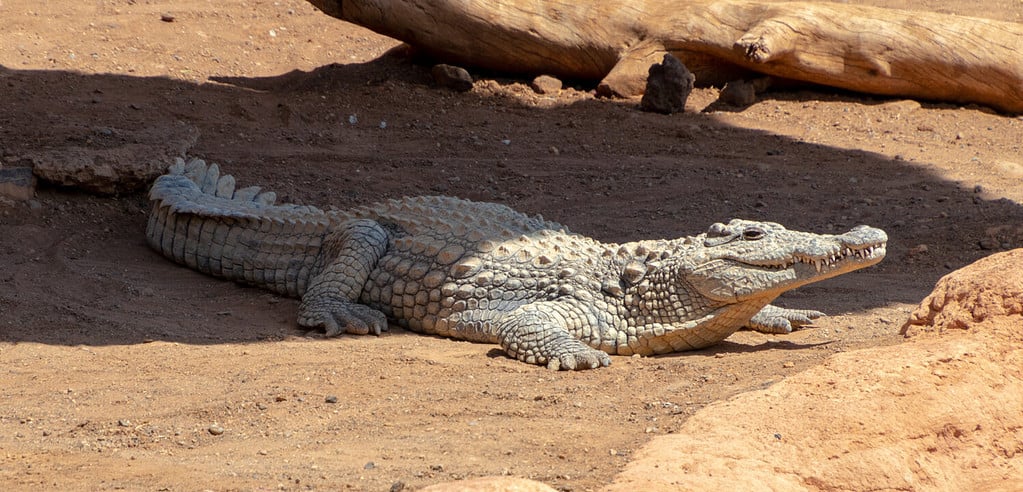
If a crocodile starts to hiss, it’s letting another animal know to get out of their territory!
©STP Fotografia/Shutterstock.com
Like many of their vocalizations, the crocodile’s hiss is an effective way to scare off other animals. They may use this hiss as a warning to another croc who’s encroaching on their territory.
5. Roar
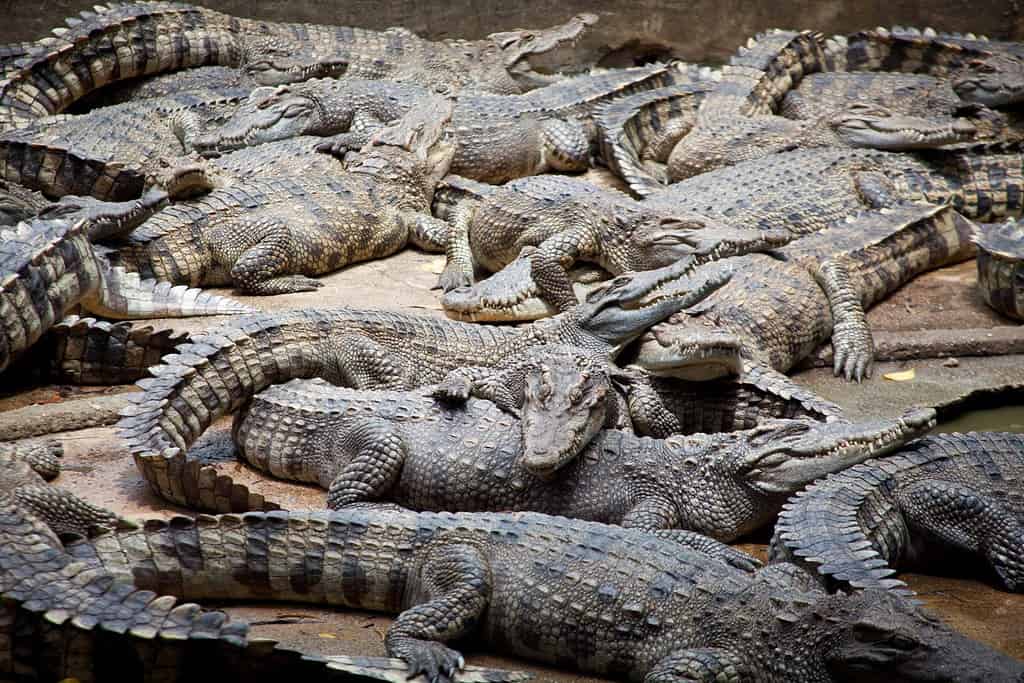
When a crocodile wants to find a mate, you may hear them roaring.
©Xin Mu/Shutterstock.com
During the breeding season, both male and female crocodiles roar loudly. They do this by tightening their muscles and arching their bodies above the water. These roars aren’t just noise; they’re important for crocodile society.
Firstly, the roars act as powerful calls to attract mates. The sound travels far across the water, helping crocodiles find each other. Secondly, the deep roars also mark territory. They let other crocodiles know who controls which area. Finally, these loud calls also scare away rival males, keeping their territory safe.
6. Squeak-Grunts
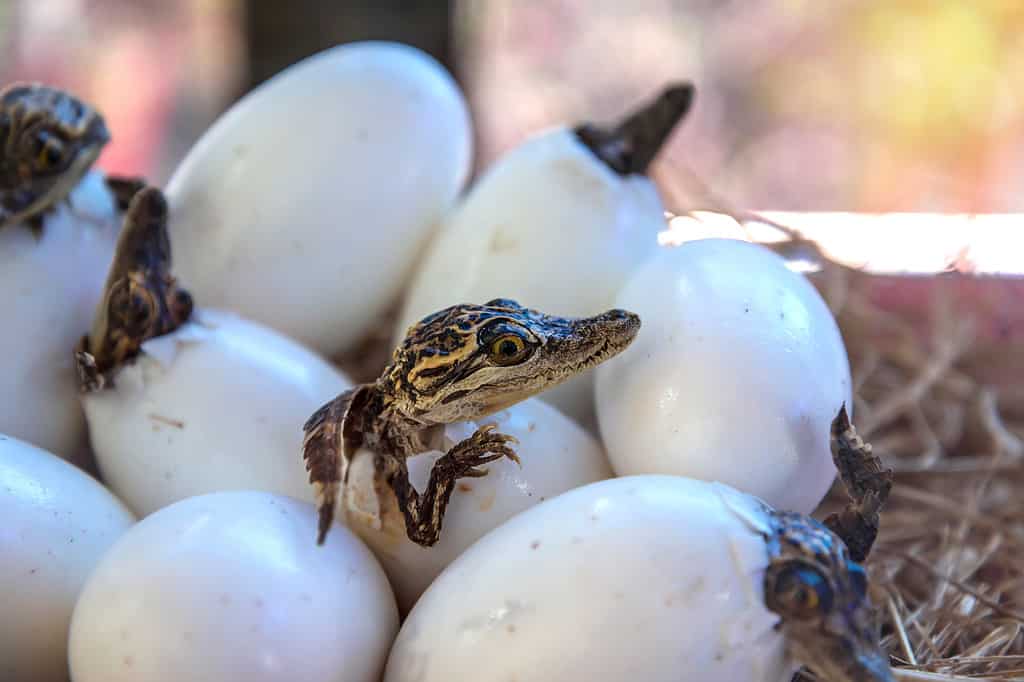
Unhatched crocodiles use sounds to synchronize their hatching time with siblings.
©Casanowe/iStock via Getty Images
Right from birth, crocodiles rely on their sounds to stay alive. When baby crocodiles hatch, they make different noises for different reasons. Some help them coordinate their hatching time with siblings, while others keep the hatchlings together or call for help.
Research shows that when the mother hears the young making sounds from within their shells, she’s quick to act. Mother crocodiles will respond by opening the nest, assisting hatchlings out of their shells, and often carrying them to the water in her mouth.
How Do Crocodiles Produce Sounds?

Crocodiles and birds, with a shared ancestry, use sounds for similar reasons.
©nattanan726/Shutterstock.com
Crocodile sounds are a bit of a mystery. Scientists are still wondering exactly how crocodiles produce sounds and the role of their brains in this process.
Archosaur Connection
It might seem strange to connect crocodiles and birds, but they’re more alike than you’d think. Both use sounds to communicate with their young, and some of the noises of crocodiles are produced in a similar way to how birds sing.
Birds and crocodiles both belong to the archosaurs group. The archosaurs, which were dominant reptiles during the Mesozoic era, are a specific group. Today, this group includes only crocodiles and birds.
How Crocodiles Hear
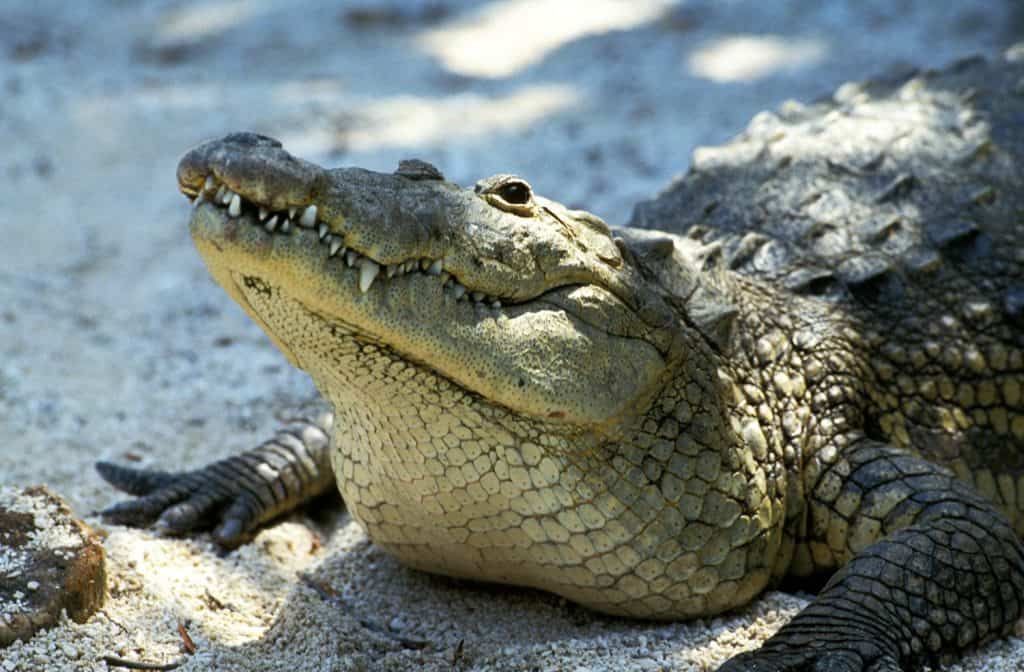
Crocodiles rely on variations in volume between their ears to pinpoint the direction of sounds.
©slowmotiongli/Shutterstock.com
Another important finding is how crocodiles hear. A crocodile’s ears work a bit like a bird’s ears, and their brains are similar in how they handle sounds. These reptiles have an external ear made up of a short tube closed by a strong flap. This tube ends at the tympanum, which is like their eardrum.
Crocodiles rely on variations in volume between their ears to pinpoint the direction of sounds. When stalking prey, a change in volume tells them a world of information. They rely more on this volume difference for high-pitched sounds compared to low-pitched ones.
How well can crocodiles hear? They’re pretty good at it! They can hear really well both on land and underwater. Crocodiles are super sensitive to both sound and vibrations, which often attracts them to things.
Do Sounds Scare Away Crocodiles?
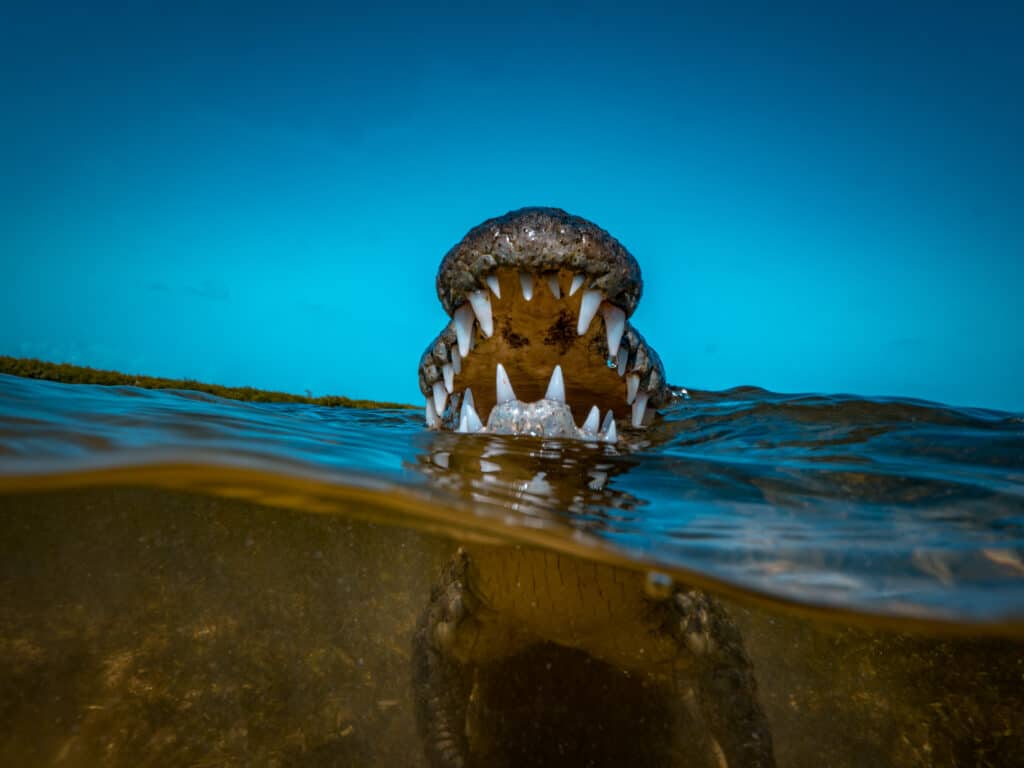
Loud noises don’t scare crocodiles; they might attract them instead.
©Willyam Bradberry/Shutterstock.com
Are crocodiles afraid of noises? Not exactly. It’s actually a myth that loud noises, such as a boat starting up, will scare crocodiles away. In reality, they are often attracted to vibrations instead.
In an experiment with Nile crocodiles, scientists trained the reptiles to swim toward a sound source for a reward. They then played various sounds to observe the crocodiles’ reactions.
The study showed that crocodiles use both loudness and timing to find sounds, but they prefer timing. This matters because a little delay in hearing a sound could mean they miss catching food. Crocodiles might also use loudness to hear certain sounds, like baby crocodiles’ chirps, especially when it’s noisy.
The photo featured at the top of this post is © petegog/Shutterstock.com
Thank you for reading! Have some feedback for us? Contact the AZ Animals editorial team.






